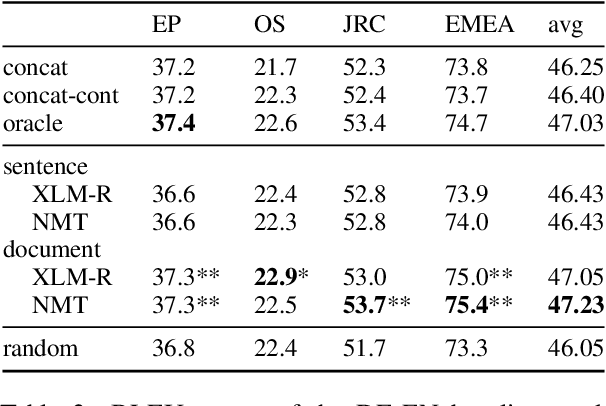Translation Transformers Rediscover Inherent Data Domains
Paper and Code
Sep 16, 2021



Many works proposed methods to improve the performance of Neural Machine Translation (NMT) models in a domain/multi-domain adaptation scenario. However, an understanding of how NMT baselines represent text domain information internally is still lacking. Here we analyze the sentence representations learned by NMT Transformers and show that these explicitly include the information on text domains, even after only seeing the input sentences without domains labels. Furthermore, we show that this internal information is enough to cluster sentences by their underlying domains without supervision. We show that NMT models produce clusters better aligned to the actual domains compared to pre-trained language models (LMs). Notably, when computed on document-level, NMT cluster-to-domain correspondence nears 100%. We use these findings together with an approach to NMT domain adaptation using automatically extracted domains. Whereas previous work relied on external LMs for text clustering, we propose re-using the NMT model as a source of unsupervised clusters. We perform an extensive experimental study comparing two approaches across two data scenarios, three language pairs, and both sentence-level and document-level clustering, showing equal or significantly superior performance compared to LMs.
 Add to Chrome
Add to Chrome Add to Firefox
Add to Firefox Add to Edge
Add to Edge